Follow us on Telegram for the latest updates: https://t.me/mothershipsg
Outward Bound Singapore (OBS) announced on June 4 that it would begin construction of OBS@Coney, a new campus on Coney Island.
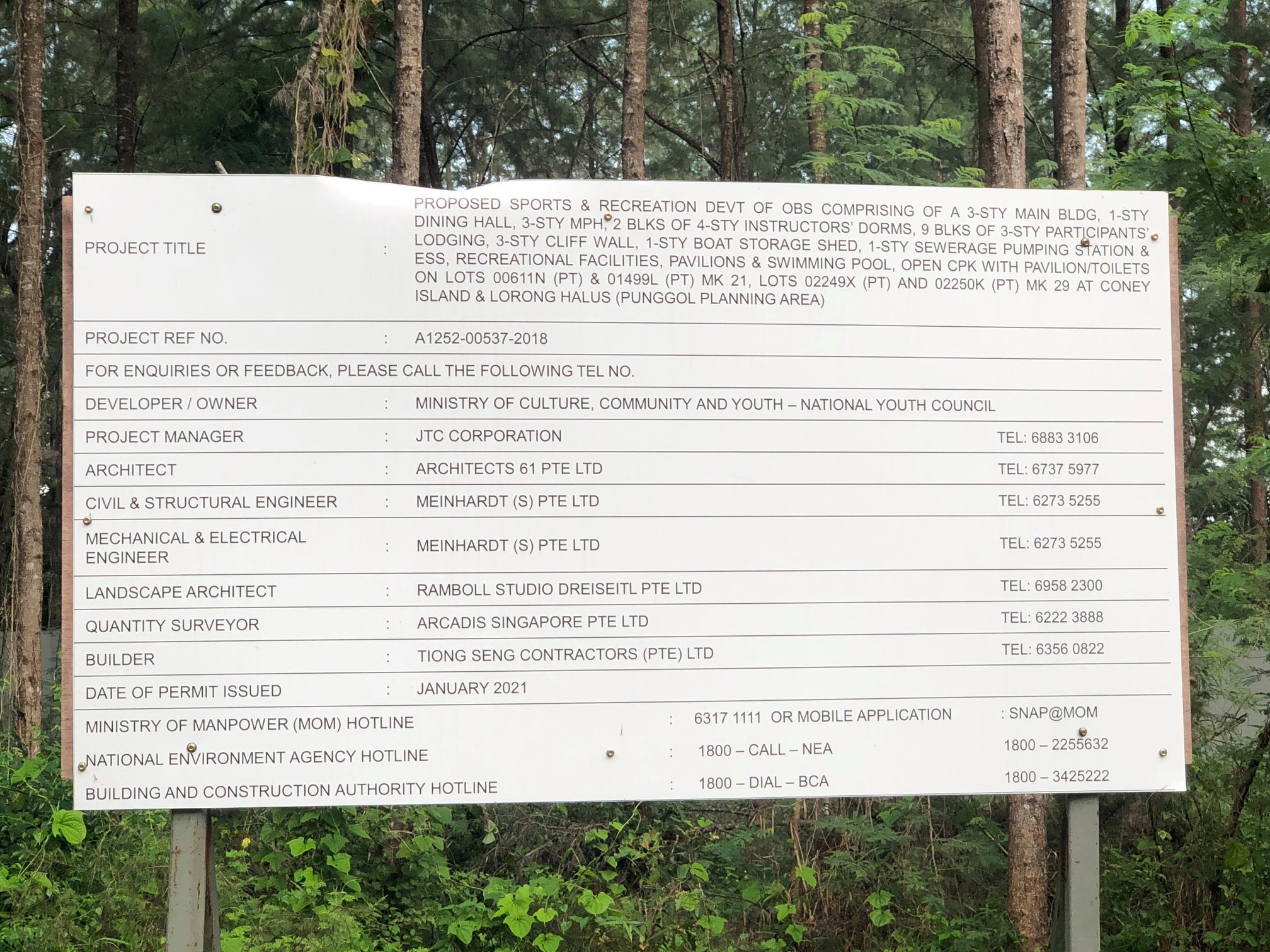 Image via OBS Singapore Facebook
Image via OBS Singapore Facebook
According to its website, the new campus is part of the National Outdoor Adventure Education Masterplan, by the Ministry of Education (MOE) and Ministry of Culture, Community and Youth (MCCY).
A necessary expansion
In a Facebook post on June 4, OBS wrote that the new premises would be a "necessary expansion" to accommodate all Secondary 3 students for a "once in a lifetime" OBS experience.
The campus is touted to be an add-on to the existing Pulau Ubin campus, and will feature new advanced obstacle courses.
It will reportedly occupy about 10 per cent of Coney Island.
The vision for OBS@Coney has three concepts, according to its website:
- Conservation of mature trees to create a "forest" buffer zone that minimises disturbances from the campus to the parkland
- Shaping of landscape to harvest rainfall onsite and reduce potable water consumption
- Diversification of planting to help create new habitats for a range of fauna species
The organisation added that during the construction, some inconvenience is to be expected closer to the East Entrance.
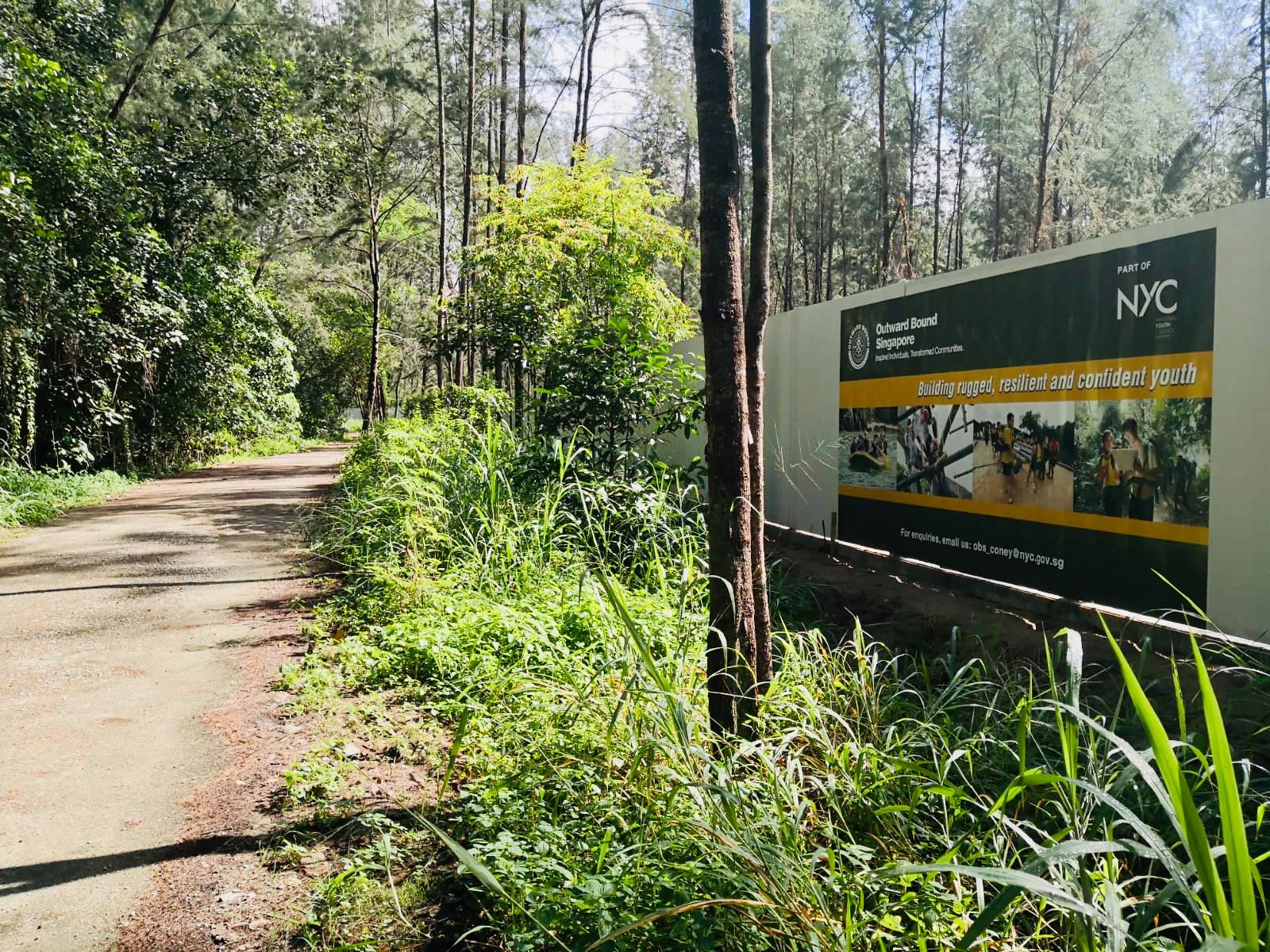 Image via OBS Singapore Facebook
Image via OBS Singapore Facebook
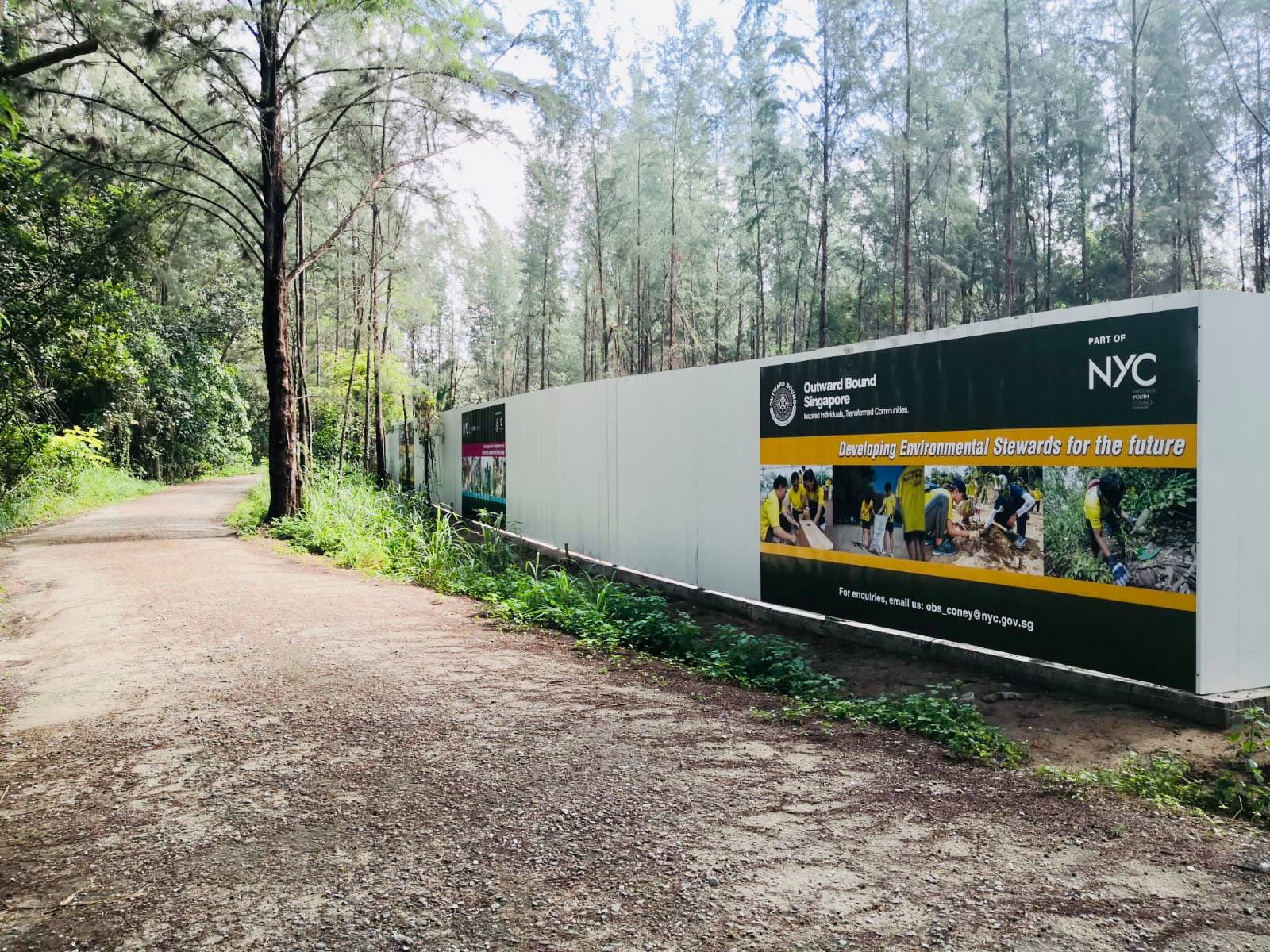 Image via OBS Singapore Facebook
Image via OBS Singapore Facebook
However, Coney Island remains open and accessible to the public, and an alternative route via the East Entrance has been made accessible since Monday, June 7.
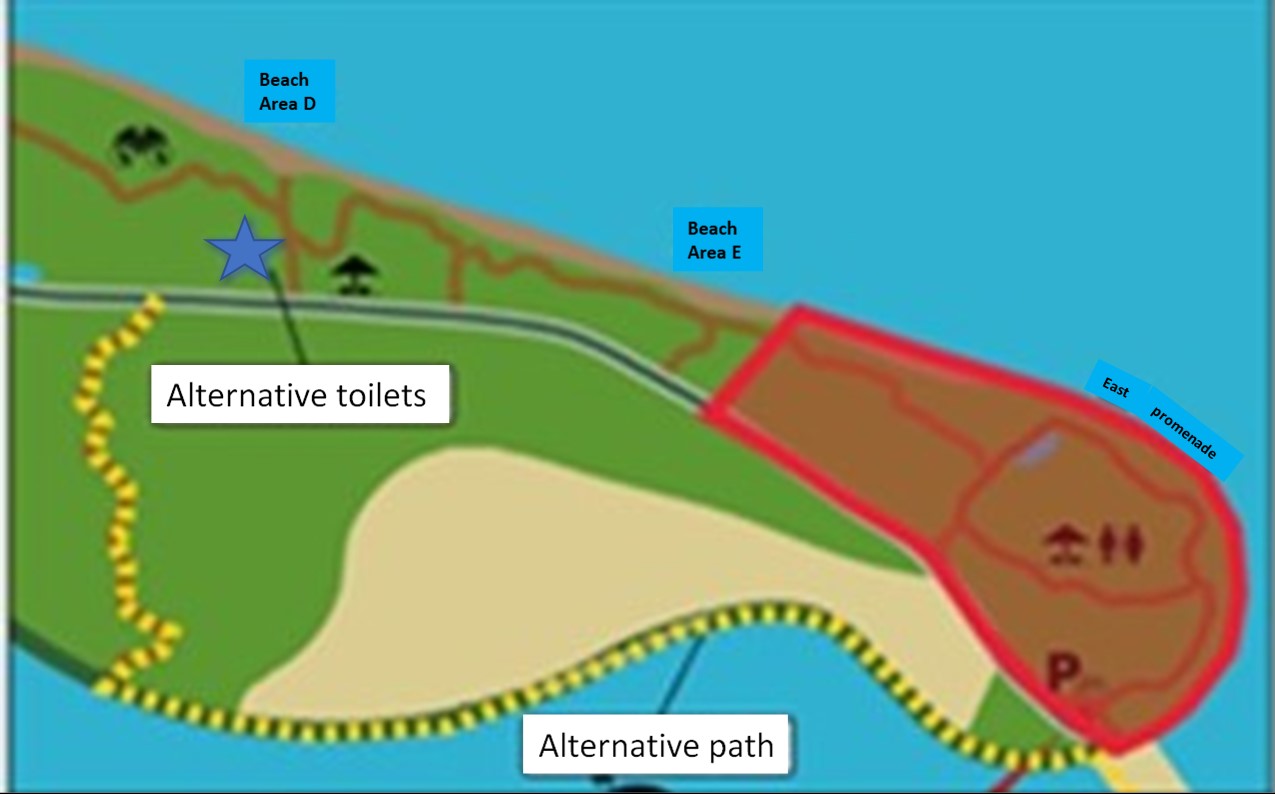 Image via OBS Singapore Facebook
Image via OBS Singapore Facebook
Public questions expansion of new campus
Following the announcement, members of the public weighed in on the construction of the new campus.
The issues raised included:
- Questioning the need for an additional campus, when there are already a number of existing sites around Singapore
- Raising concerns over the impact of construction on nature and wildlife on Coney Island
Why is there a need for an additional campus?
Some of those who commented online pointed out that there were already other existing campsites, including the ones at Pulau Ubin and East Coast Park.
Resources should instead be channelled towards improving on existing facilities and building a better experience for students there, they added.
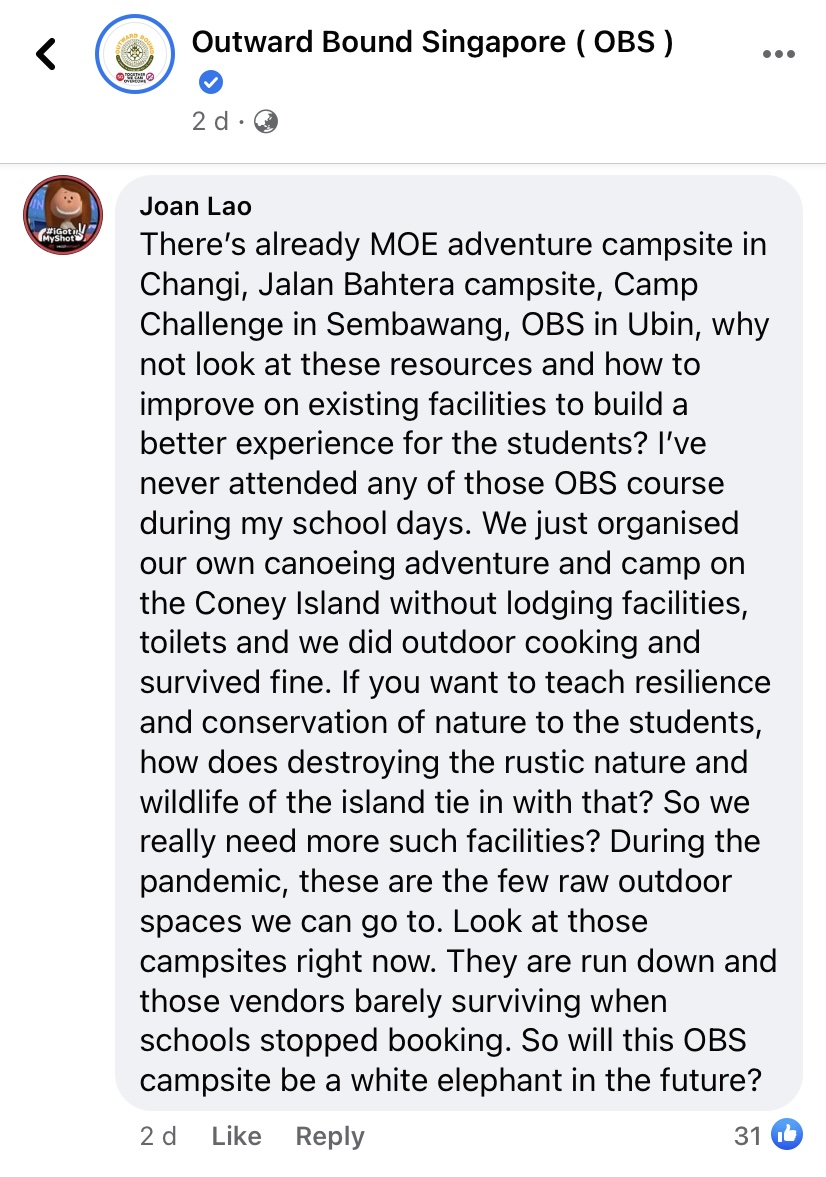 Image via OBS Facebook
Image via OBS Facebook
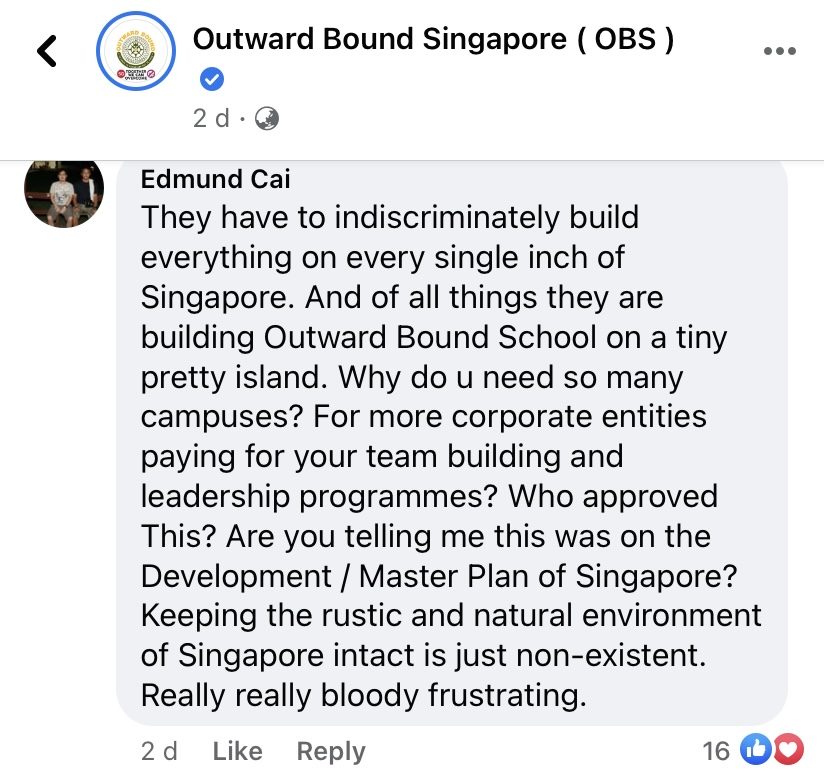 Image via OBS Facebook
Image via OBS Facebook
Others also questioned if the new OBS@Coney campsite would become a "white elephant" in the future, if it was to be used exclusively for OBS.
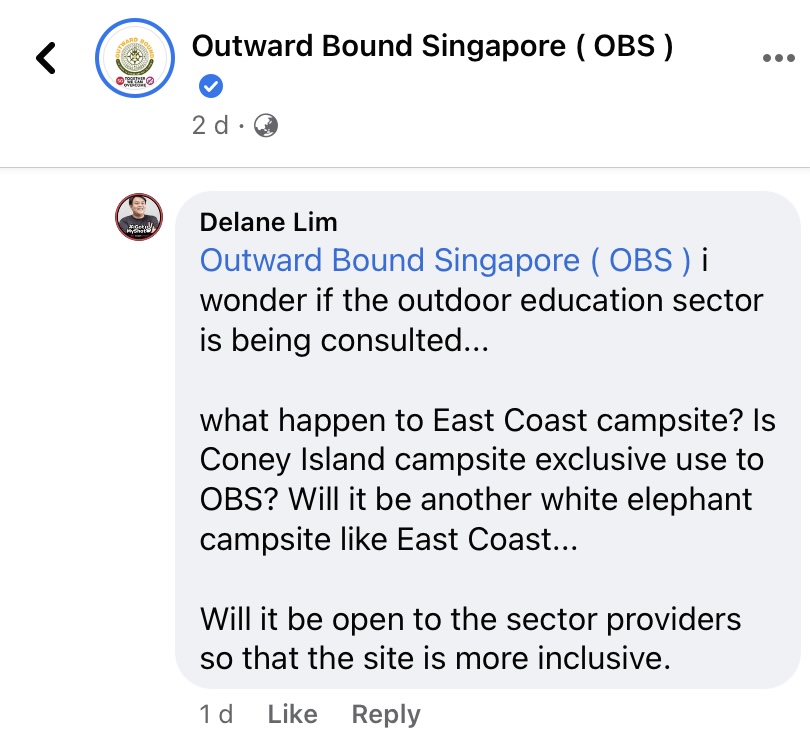 Image via OBS Facebook
Image via OBS Facebook
Preservation of Coney Island
There were also concerns over the impact of construction on surrounding vegetation and wildlife.
A few commenters pointed out that Coney Island should be "left as a nature park", as it remained one of the few islands "untouched by any urban structure".
Coney Island is home to a variety of habitats, including coastal forests, mangroves, and casuarina woodlands.
According to the National Parks Board website, it is also home to a variety of wildlife, including 80 species of birds and other flora, some of which are critically endangered.
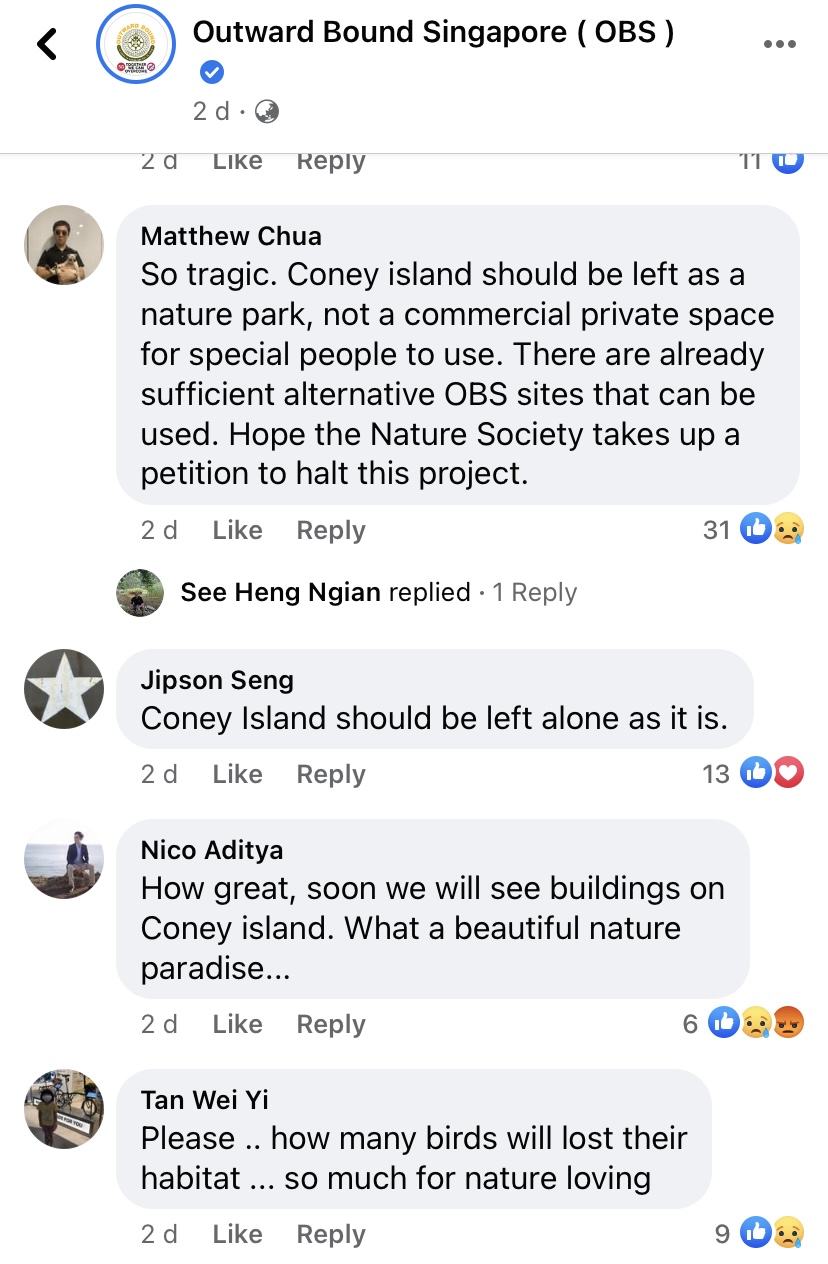 Image via OBS Facebook
Image via OBS Facebook
 Image via OBS Facebook
Image via OBS Facebook
Other commenters then pointed out the irony in building a campus for "rustic outdoor camping" with concrete structures, given that this would be like "bringing the city into natural surroundings".
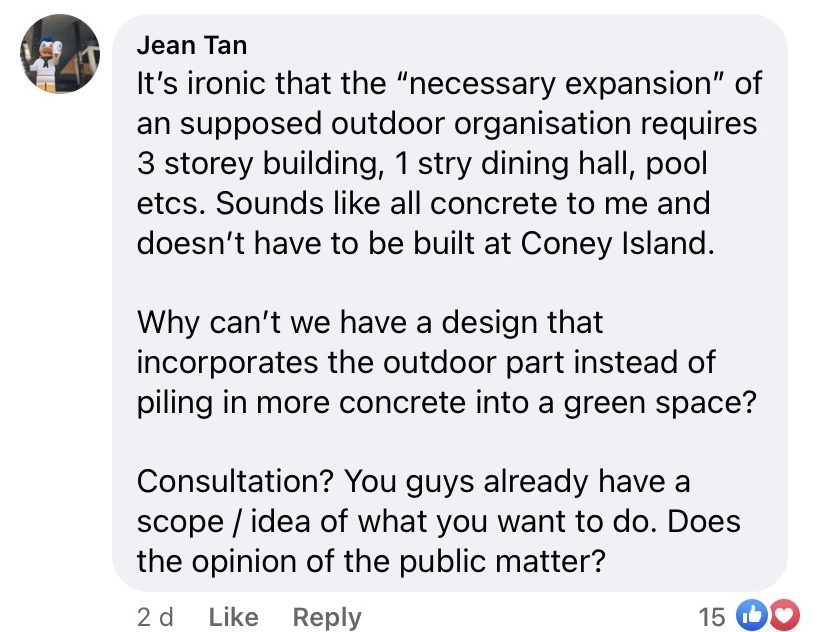 Image via OBS Facebook
Image via OBS Facebook
 Image via OBS Facebook
Image via OBS Facebook
OBS: To expand outdoor adventure education
In response to Mothership's queries, a spokesperson from OBS said that OBS@Coney is part of the government's efforts to expand outdoor adventure education, and increase capacity to provide quality outdoor opportunities for all children.
According to OBS, the area used to develop OBS@Coney is on reclaimed land, which has been zoned for sports and recreation use.
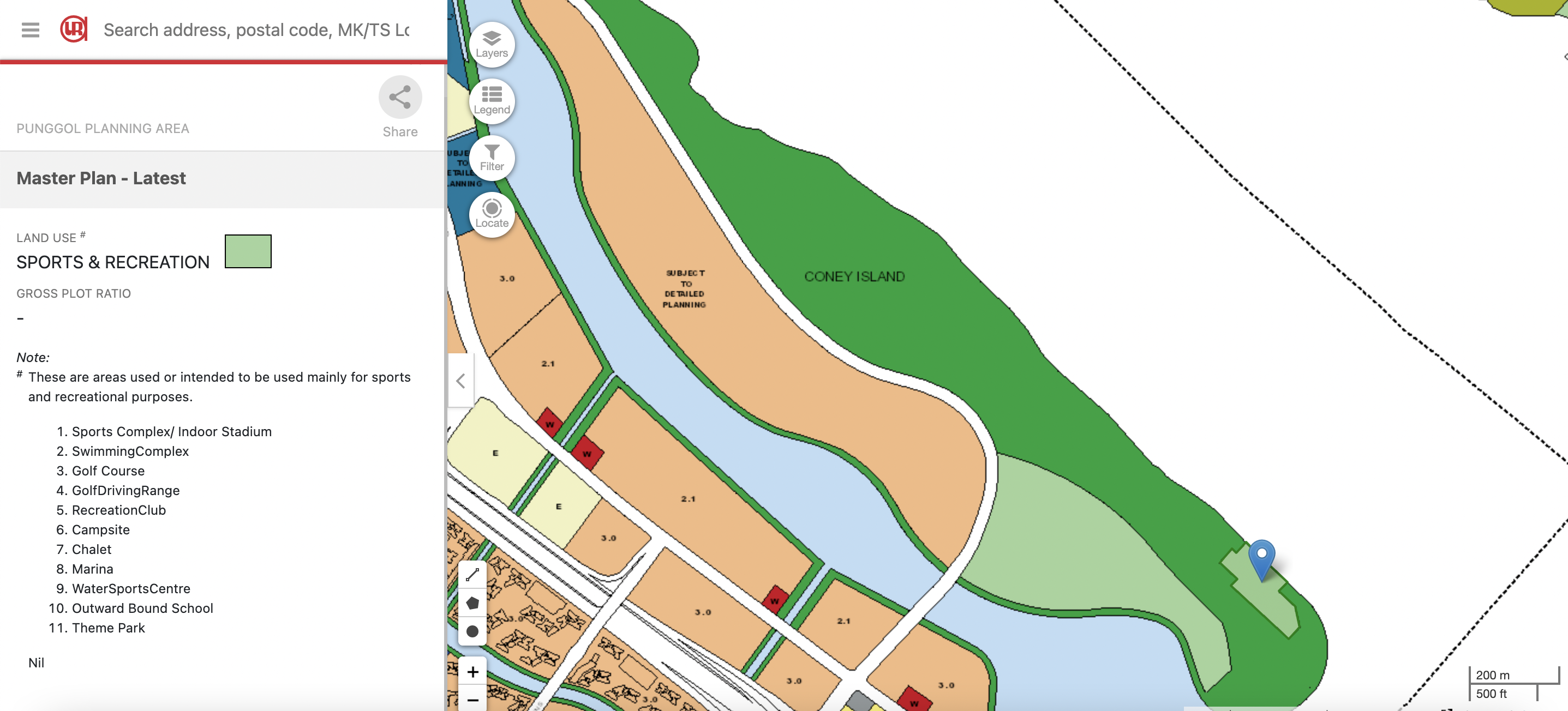 Image via URA website
Image via URA website
An environmental impact study (EIS) was completed in 2018, with recommendations and insights from the study incorporated into the design of the new campus, in efforts to minimise the environmental impact of the development.
OBS added it will be working closely in consultation with NParks, nature groups, and other stakeholders, to minimise any adverse impact to flora and fauna on the island during construction works.
Members of the public can fill up a form if they wish to give feedback or be involved in environment mitigating measures for the project.
Here's the full statement from OBS:
As part of the government’s efforts to expand outdoor adventure education for all students through a National Outdoor Adventure Education (OAE) Masterplan announced at Budget 2016, OBS@Coney will be instrumental in developing social cohesion, ruggedness and resilience among youth in Singapore. Together with OBS’ existing campuses, OBS@Coney will increase our annual capacity to provide quality outdoor adventure training opportunities.
The area used to develop OBS@Coney is on reclaimed land which has been zoned for Sports and Recreation use. Having the campus on Coney Island offers the dual advantage of proximity to the OBS campus on Pulau Ubin and connectedness to mainland Singapore. This provides greater access to training areas for OBS and more flexibility to utilise expanded areas on mainland Singapore for Outdoor Education.
As OBS embarks on the development of OBS@Coney, we strive to minimise environmental impact while maintaining the quality and safety of our programmes. OBS has been working closely in consultation with the National Parks Board (NParks), nature groups, and various stakeholders to incorporate their feedback and suggestions for the development of OBS@Coney.
An environmental impact study (EIS) was completed in 2018 to look into minimising the environmental impact of the developments on Coney Island. The recommendations and insights from the EIS were incorporated into the design of the Coney campus, which will integrate nature and feature eco-friendly features such as rainwater harvesting to reduce potable water usage. Natural ventilation will also be optimised to reduce reliance on air-conditioners. We also consulted nature groups for feedback on the types of greenery that could be introduced into the new campus to enhance biodiversity.
Construction works will be carefully planned to minimise adverse impact to flora and fauna on the island. In line with our Environmental Monitoring and Management Plan (EMMP) during construction, we will also work with NParks on the careful handling of wildlife found within our development site, and the transplanting and re-planting of flora.
We invite members of the public to fill up this form (https://go.gov.sg/obsconeyig) if they have any feedback on how we could further promote environmental sustainability in OBS programmes, or if they wish to be involved in further environmental mitigating measures for the construction phase of OBS@Coney.
Top image via OBS Facebook
If you like what you read, follow us on Facebook, Instagram, Twitter and Telegram to get the latest updates.
